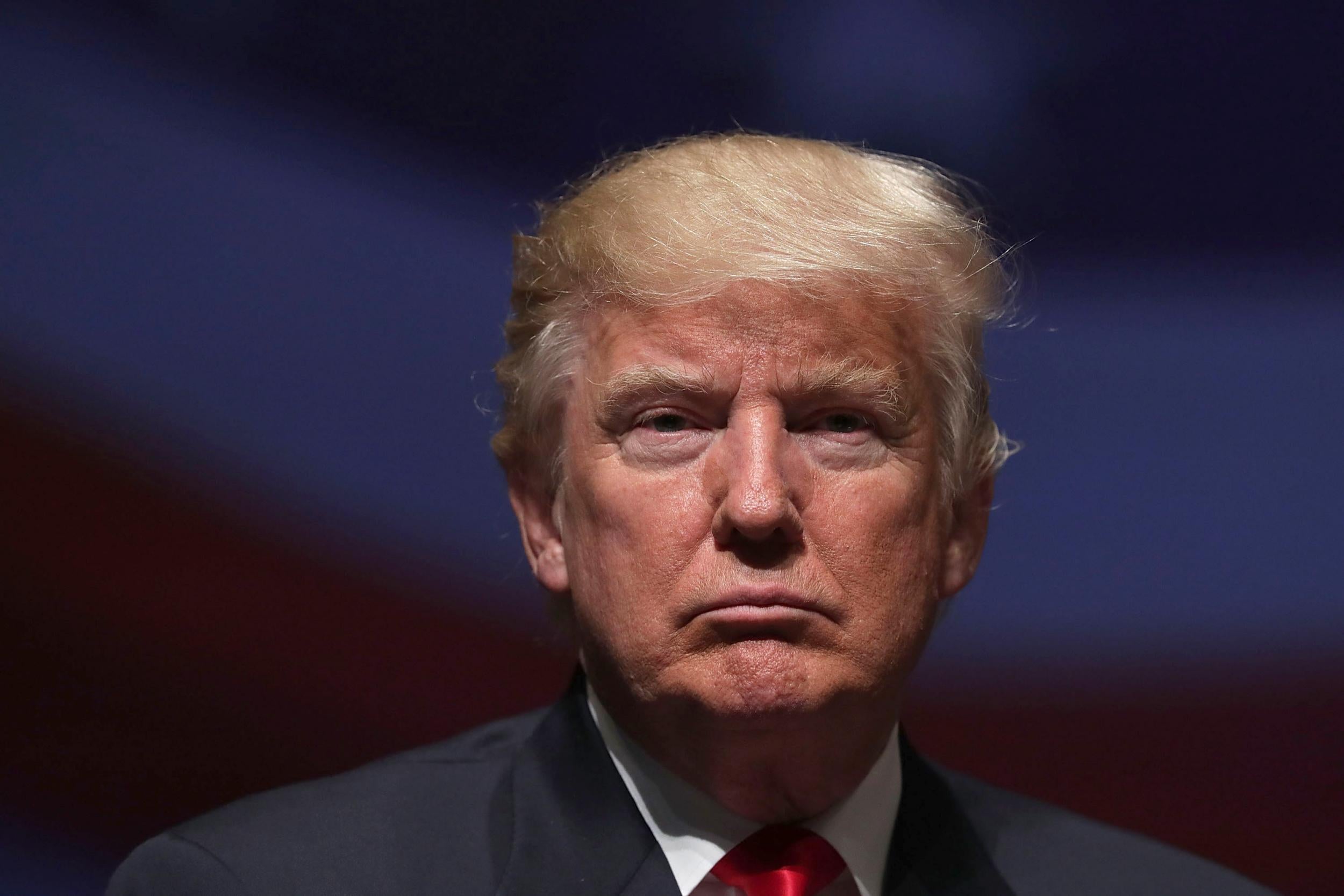Donald Trump says 'I don't want China dictating to me' signalling President-elect could abandon decades-old foreign policy
Former reality star says Beijing needs to grant more concessions on trade and security

Your support helps us to tell the story
From reproductive rights to climate change to Big Tech, The Independent is on the ground when the story is developing. Whether it's investigating the financials of Elon Musk's pro-Trump PAC or producing our latest documentary, 'The A Word', which shines a light on the American women fighting for reproductive rights, we know how important it is to parse out the facts from the messaging.
At such a critical moment in US history, we need reporters on the ground. Your donation allows us to keep sending journalists to speak to both sides of the story.
The Independent is trusted by Americans across the entire political spectrum. And unlike many other quality news outlets, we choose not to lock Americans out of our reporting and analysis with paywalls. We believe quality journalism should be available to everyone, paid for by those who can afford it.
Your support makes all the difference.Donald Trump has questioned whether the US should continue its support for the “One China” policy unless Beijing makes concessions on trade and other issues.
“I don’t want China dictating to me”, he said while defending his recent phone call with Taiwanese President Tsai Ing-wen.
In an interview with Fox News on Sunday, he said: “I don't know why we have to be bound by a 'One China' policy unless we make a deal with China having to do with other things, including trade.”
The President-elect was responding to a question about his phone conversation with Taiwanese President Tsai Ing-wen, which represented a break with decades of US diplomatic tradition that recognises Beijing as the sole representative of China.
Mr Trump said he had only a few hours notice that the call was coming and that reports it had been prearranged by his team were false.
The “One China” policy means Beijing and Washington both consider Taiwan a part of China.
Mr Trump went on to claim China was also a currency manipulator and needed to do more to curb North Korea's nuclear ambitions.
He said that as North Korea's main patron, China “could solve that problem” but “they're not helping at all” and also criticised China's aggressive actions in the South China Sea.
The billionaire said it would have been disrespectful not to take the call from Ms Tsai, who had congratulated him on his victory.
He said: “It was a very nice call. Short. And why should some other nation be able to say I can't take a call?”
The “One China” policy grew out of the ending of the Chinese Civil War in the late 1940s when the Nationalist government under Chiang Kai-shek was overthrown by the Communists, forming the People’s Republic of China, and fled to the island of Formosa (now Taiwan) – where they formed the Republic of China.
At the time the Nationalists vowed to return to Beijing and for many years Western powers recognised them as the official rulers of China.
But the US first formally adopted the “One China” policy in 1972 when President Richard Nixon opened up relations with China under the ailing Chairman Mao Tse-tung – despite continuing informal relations with Taipei.
The People's Republic of China had replaced the Republic of China as a permanent member of the UN Security Council a year earlier.
In recent years a movement has grown in Taiwan calling for the government to declare official independence from the Chinese mainland – something Beijing fiercely opposes.
Additional reporting by agencies
Join our commenting forum
Join thought-provoking conversations, follow other Independent readers and see their replies
Comments